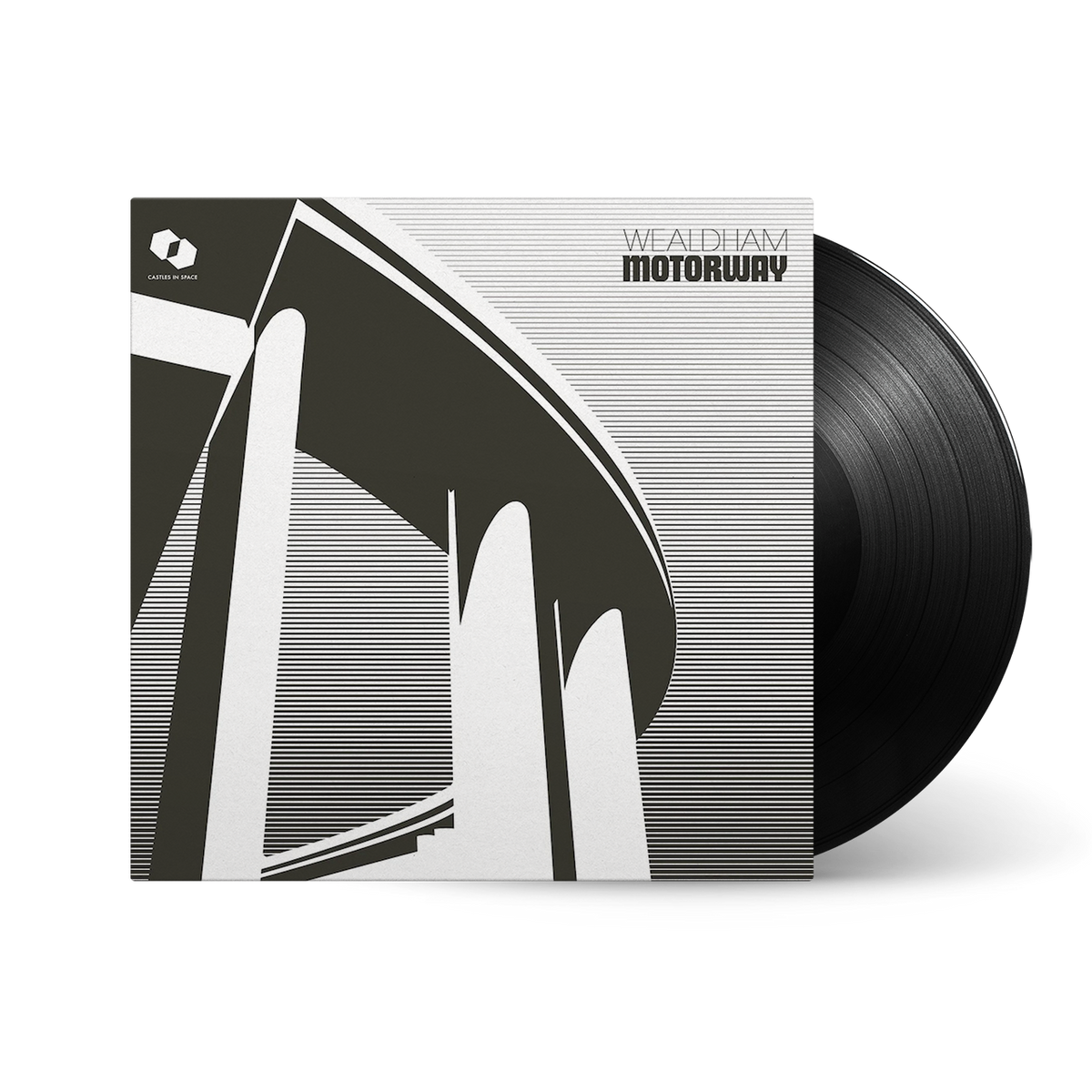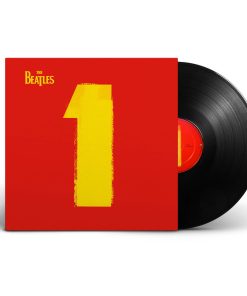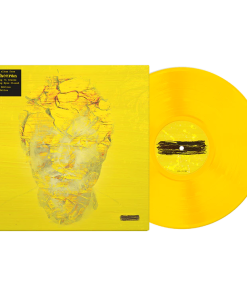Motorway: Vinyl LP Wealdham
$ 26,99 $ 16,19
“Growing up as a kid in 70’s London, I once unearthed an early 60’s proto plastic toy motorway playset at a suburban jumble sale. The cars themselves were missing, but that did not matter. I instantly wanted the set. The road sections which slotted together to form a figure of 8, were bitumen-black and basic. Devoid of decals, signposts or any sort of detail at all, in many ways the assembled track resembled a satisfyingly minimal, mobius strip sculpture. But it was the evocative box artwork I loved the most. An illustration reminiscent of the bright, futuristic world portrayed in the ladybird books of the time showed a broad 4-lane blacktop with a series of identical untarnished cast concrete overpasses cutting through the rolling green landscape. Down the left-hand side of the box in bright yellow – the single word Motorway in block capitals. The box art spoke of unknown journeys, of the safe efficient expediency and hypnotic, repetitive sights and sounds of the major arterial road.
The playset artwork must have resonated deeply as the same sensations unexpectedly resurfaced a decade or so later when I first encountered Kraftwerk’s seminal Gesamtkunstwerk ‘Autobahn’. Both the artwork and the recording are perfect of course and need no further discussion here. The record oozes what seemed unattainable and romantic; a vision of far-off European cities defining the future through design and speed.
A third epiphany occurred reading J.G. Ballard’s classic novel ‘Concrete Island’; in which a blown tyre sends architect Robert Maitland’s Jaguar plunging down an embankment, ending up on a patch of wasteland hemmed in by three roads. Injured and dazed, Maitland is stranded, unable to attract the attention of drivers above, unable to find a way out. Through Ballard’s words, I came to understand that there were similarities in the uncanny disconnect these non-places evoke the world over: Motorways are spaces we know intimately but will also never set foot on. The ‘no-man’s land’ we see between motorway lanes and intersections are familiar, but unreachable. We pass them regularly, but do not notice them in detail.
Crashing onto the island, Maitland becomes a ‘no-man’; he enters a void and becomes invisible himself.
I wanted to make a record which somehow brought together and reflected these influences and the feelings they evoke in me. And which paid unabashed homage to the sources. This record Motorway is it. I hope you enjoy the journey.”
Fast Delivery and Professional Packaging
Our long-standing relationship with UPS FedEx DHL and other carriers around the world gives us the ability to provide various shipping options. Our warehouse personnel will pack all goods to our exacting requirements. Your goods will go through an extensive inspection and will be securely secured prior to being shipped. Every day we ship thousands of packages to clients from all over the world. This is a sign of our determination to be the largest online retailer in the world. There are distribution centers and warehouses in Europe and the USA.
Orders that contain more than 1 item are assigned processing periods in accordance with the item.
Prior to shipment, all purchased items will be thoroughly inspected. The majority of orders are shipped within 48 hrs. Delivery is expected to take between 3 and 7 days.
Returns
The stock is dynamic and we do not completely manage it because multiple parties are involved, which includes our factory and warehouse. The actual stock can fluctuate at any time. It's possible that the stock may run out after your order has been processed.
Our policy lasts for 30 days. Unfortunately, if thirty days have passed from the date you purchased the item, we will not be able to offer you a return or exchange.
The item should not be used, and it must be in the original packaging. The item should be in the original packaging.
Related products
Vinyl LP
Vinyl LP
Vinyl LP
Vinyl LP
Vinyl LP
Vinyl LP
Vinyl LP
Vinyl LP






































